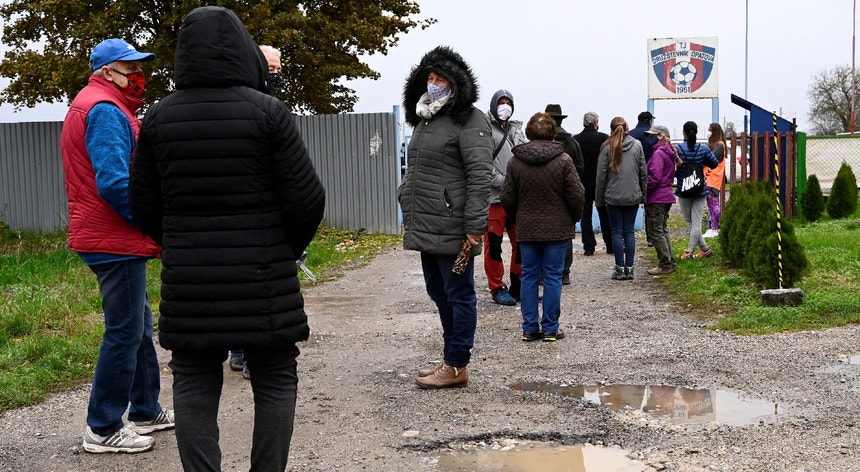According to the Slovak Minister of Defense, 2.58 million inhabitants took the test on Saturday, of which 25.850 – about one percent – had a positive result and therefore entered into a home quarantine.
This European country has 5.5 million people and intends to test as many as possible by the end of this Sunday, with the exception of children under the age of ten.
To carry out the strategy, over 40,000 doctors and support teams made up of military, police, administrative and volunteers were deployed in nearly 5,000 locations to carry out Covid-19 tests on the population.
The plan, unprecedented in a country of this size, is being followed closely by other nations, who will consider replicating it if it is successful.
This weekend’s tests in Slovakia were voluntary and free, but the government of that country will impose strict quarantine to all who choose not to participate, including a ban on travel to the workplace.
Prime Minister Igor Matovic apologized for pressuring the population to participate in this testing strategy, but argued that the pandemic situation justified the action.
“Freedom must be added to the responsibility to protect the weakest among us: cancer patients, the elderly and people with other diseases”, declared at a press conference.
Strategy was criticized
Slovakia, which has been the target of relatively few cases of infection with the new coronavirus during the spring and summer, after having rushed to impose restrictions, has seen exponential growth in that number in recent weeks.
This weekend’s testing experience was criticized by some experts, who doubted its effectiveness and pointed out the fact that the rapid antigen tests being used are less accurate than the PCR (laboratory) tests and therefore may result in false negatives or false positives.
After these two days of testing nationwide, the Slovak government intends to hold a second round next weekend, in order to identify cases that may have escaped this time or people that may be infected over the next week.
Since the beginning of the pandemic, this small European country has accounted for almost 60,000 cases of SARS-CoV-2 infection – not counting those that are being identified in this weekend’s national testing – and only 219 deaths.
– .


